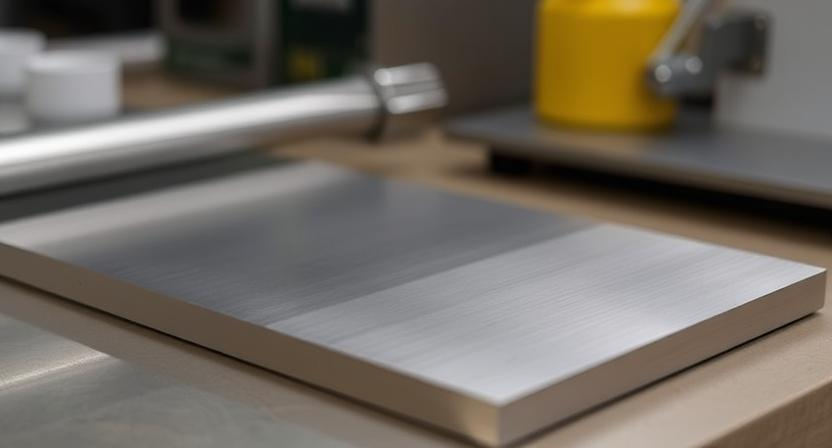The Big Picture: Titanium is a true "super-metal." Its most famous properties are being incredibly lightweight, extremely strong, and completely rust-proof. This unique combination makes it perfect for the toughest jobs on Earth and in space.
Titanium (element symbol Ti, atomic number 22) is one of the most exciting metals used in modern technology. It's not just a fancy material for jewelry or bike frames; it's a critical component in aerospace, medicine, and chemical industries. Let's break down the key properties that make titanium so special.

Mechanical properties tell us how a material reacts to outside forces like pushing or pulling. This is where titanium really shines.
Strength-to-Weight Ratio: This is titanium's superpower. It is as strong as some steels, but about 45% lighter. This means you get a lot of strength without the heavy weight.
Tensile Strength: It can handle a lot of pulling force before it breaks. Titanium alloys, in particular, have very high tensile strength.
Ductility: Titanium is quite ductile, meaning it can be stretched into thin wires or shaped without breaking. This makes it easier to work with than you might think.
Elasticity: It is more elastic and flexible than steel. It can bend and return to its original shape without permanent damage.
The chemical side of titanium is what makes it so durable and safe for the human body.
Corrosion Resistance: Titanium is almost completely resistant to rust and corrosion. When exposed to air, it instantly forms a thin, protective layer of titanium dioxide (TiO₂). This layer protects the metal from saltwater, chlorine, and most acids.
Biocompatibility: This is a key property for medicine. Titanium is non-toxic and the human body does not reject it. It can actually bond with bone and tissue, making it the perfect material for implants.
Reactivity: While it is very stable at room temperature, titanium becomes highly reactive at high temperatures. This means it must be processed carefully.
These are the basic characteristics we can see or measure, like color and density.
Density: It has a low density, which is why it is so lightweight. It is about half the density of steel.
Color and Luster: Pure titanium is a lustrous, silvery-white metal.
Melting Point: Titanium has a very high melting point (around 1,668 °C or 3,034 °F). This high heat resistance is why it's used in jet engines and other high-temperature applications.
Non-Magnetic: Titanium is non-magnetic, which is important for certain electronic and medical applications (like MRI machines).
You will often hear about "pure titanium" and "titanium alloys." Here is the simple difference:
| Property | Pure Titanium (Commercially Pure) | Titanium Alloys (e.g., Ti-6Al-4V) |
|---|---|---|
| Best For | Corrosion resistance and ductility (easy to shape). | Maximum strength and heat resistance. |
| Strength | Good, but lower than alloys. | Excellent—much stronger than pure titanium. |
| Biocompatibility | Excellent, often used for medical implants. | Very good, also widely used in medicine. |
The Most Common Alloy: The most popular titanium alloy is Ti-6Al-4V (Grade 5). It is mixed with 6% Aluminum and 4% Vanadium to make it much stronger and tougher than the pure metal.
Titanium's amazing properties lead to some incredible uses:
Aerospace: Because of its light weight and high heat resistance, it makes up a large part of jet engines and aircraft frames.
Medical: Its biocompatibility is why it's used for artificial joints, bone screws, and dental implants.
Consumer Goods: Used in high-end watches, glasses frames, and sports equipment for its light weight and durability.
Chemical Industry: Its corrosion resistance makes it perfect for tanks and pipes that handle harsh chemicals.
Titanium is not just strong; it's smart. Its combination of light weight, extreme strength, and natural resistance to corrosion is what truly sets it apart from other metals. It is a material built to last, whether it's flying high in the sky or healing a body.